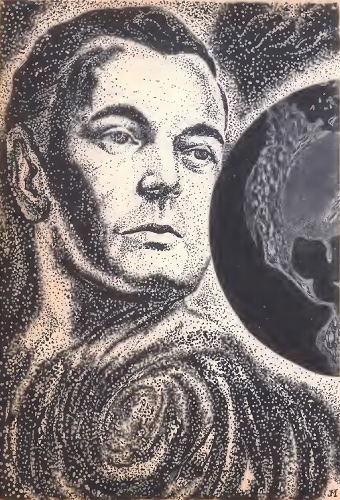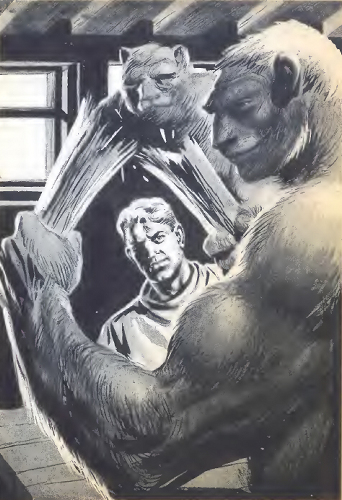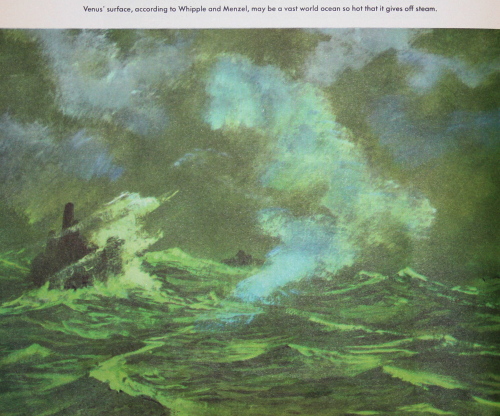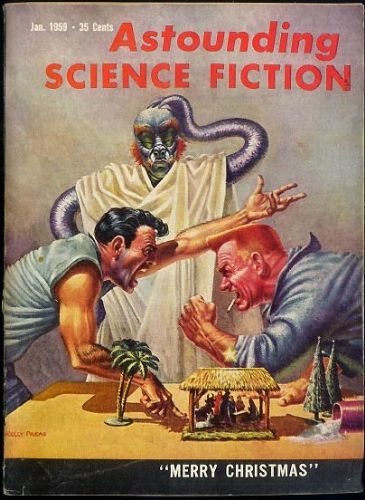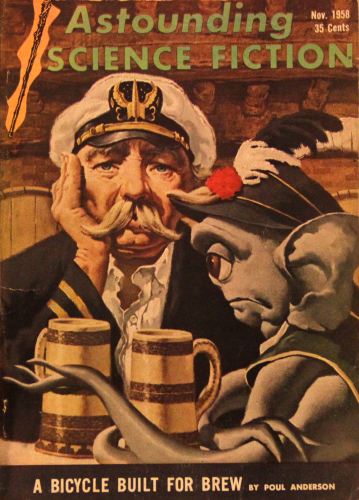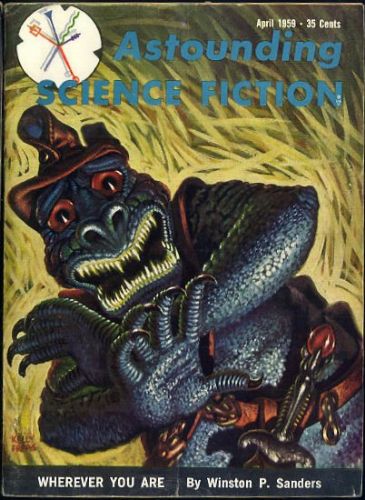
Good gravy! Two good Andersons in a row?
This month's Astounding opens with Wherever you are, by "Winston P. Sanders." If it wasn't the swashbuckling yet science-adoring prose, it was the heroine protagonist's name and ethnicity (Ulrica Ormstad–couldn't get more Swedish!) that suggested Mr. Sanders might well be the well-known nordic science fiction writer, Poul Anderson. A quick checking of sources confirmed the suspicion.
Well, it's really good. The fierce soldier, Major Ormstad, gets to be the viewpoint character for half the novelette, whereupon her meek and brainy shipmate, Didymus Mudge, becomes the reader's eyes. Both have become marooned on an alien planet, an ocean away from the local Terran base. Ship's instruments have been destroyed, and constant cloud cover and a lack of a magnetic pole preclude navigation. It is up to Mudge to puzzle out a way home, and up to Ormstad to deal with the fierce mini-Tyrannosaurs so as to secure transportation. My favorite line of the story goes to Ormstad, who initially thinks little of Mudge yet deigns to speak to him anyway:
"For one honest human conversation, in any human language, she would trade her soul. Make it Swedish, and she'd throw in her sidearm."

On to the next story. When I was a kid, one of my favorite books was John Dough and the Cherub, by L. Frank Baum, sort of a Wizard of Oz side story. In one of the chapters, the story's heroes (John Dough and Chick the Cherub) are captured and threatened with execution. However, this execution is delayed when Chick the Cherub begins to tell the tale of "The Silver Pig." So entranced are the heroes' captors that they delay the execution every night so as to hear more of the pig's adventures. Of course, the story is designed to be endless so as to forestall the execution long enough for John Dough and the Cherub to escape.
I learned much later that this had been the plot to 1,001 Arabian Nights, and the cliché has been used a myriad of times since then. Usually, the set-up is that sentence of death will follow some religiously or legally prescribed ritual, with the sentenced to have some choice as to the format of the ritual. Virtually every story has the same format–the reader is informed that our hero has worked out the puzzle to prolong his/her life, but we don't get to find out the solution until the end. Since classic science fiction favors the "gotcha" ending, I've seen this kind of story a lot in my literary travels.
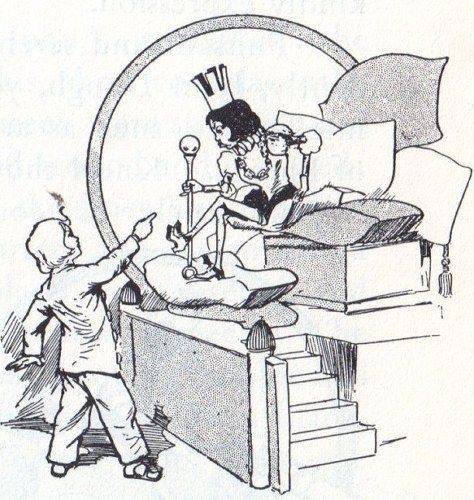
So it is with Now Inhale, by Eric Frank Russell. I didn't much care for his last story, but this one is fine. A Terran is imprisoned for suspected espionage on an alien world. Condemned to death, he is allowed one final game of his choice before strangulation. The trick is to prolong the game, to neither win nor lose. The record was 17 days. Our hero beats this record a dozen-fold and is prepared to play the game forever, if need be. Can you guess the game?
I'm afraid the rest of the ish meanders into mediocrity (which is perhaps above par for Astounding these days. Chris Anvil's The Sieve is nothing special–on a brand new colony world, half the pioneers take up smoking the local marijuana and become lazy and shiftless. The rest of the colonists decide to let them starve over the winter. Reefer madness, indeed.
Gordy Dickson turns in a disappointing performance with The Catch, in which a galactic federation fairly begs humanity to retake the reins after thousands of years of retirement. It seems those darned aliens just can't stand the burden of leadership. And it turns out they got all of their technology from humanity the last time we were ascendant. Poor little primitive aliens.
Definitely a story after Campbell's heart.
Finally, we have Set a Thief by H. Chandler Elliott, a Canadian brain doctor whose stuff I've never before read. It's an interesting first contact story, though told in a flip off-hand manner I didn't much care for. Is it a set of thieves' tools or a lady's handbag? An interesting case of convergent evolution, to be sure.
The rest of the ish is the final installment of The Pirats of Ersatz so there's nothing more to report for this month. My hands are throbbing, so I may take a break until March 24. I'll have lots to write about by then, though.
Thanks for reading!
(Confused? Click here for an explanation as to what's really going on)
This entry was originally posted at Dreamwidth, where it has comments. Please comment here or there.



